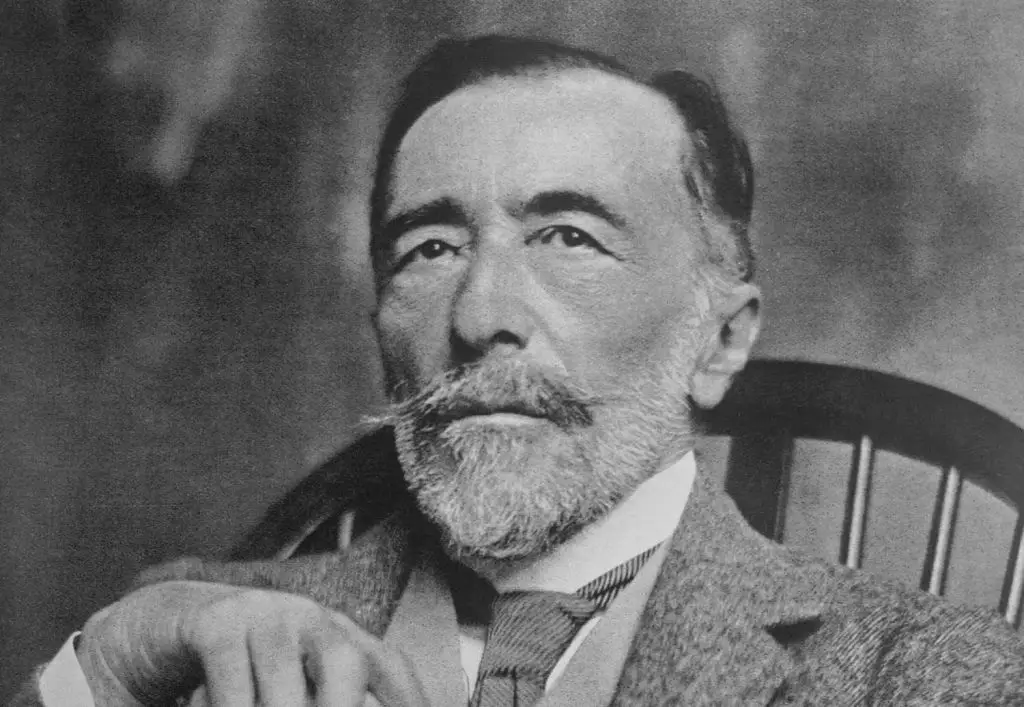Joseph Conrad was a prolific British-Polish writer who is widely regarded as one of the greatest novelists in the English language. Born in 1857, Conrad’s literary works explore themes of human nature, imperialism, and the dark side of the human psyche. His most famous works include “Heart of Darkness” and “Lord Jim,” showcasing his unique writing style and narrative techniques.

Biography Of Joseph Conrad
| Category | Information |
|---|---|
| Full Name | Józef Teodor Konrad Korzeniowski |
| Date of Birth | December 3, 1857 |
| Place of Birth | Berdychiv, Ukraine |
| Nationality | British (originally Polish) |
| Occupation | Novelist, Writer |
| Notable Works | “Heart of Darkness”, “Lord Jim”, “Nostromo” |
| Period | Late 19th – early 20th century |
| Style | Modernist, Psychological, Dark Romanticism |
| Major Themes | Colonialism, Exploration, Human Nature, Morality |
| Death | August 3, 1924 (age 66) |
| Place of Death | Canterbury, England |
Early Life Of Joseph Conrad
Joséph Teodor Konrad Korzeniowski, better known by his pen name Joseph Conrad, was born on December 3, 1857, in Berdychiv, a town in present-day Ukraine. He was raised in a noble family and grew up speaking Polish and French. At the age of 16, Conrad left Poland to pursue a career at sea, boarding a French merchant ship. Over the course of the next two decades, he sailed to various parts of the world, including Asia, Africa, and South America. Conrad’s experiences at sea greatly influenced his later writing, as he witnessed the harsh realities of colonialism, imperialism, and human nature. In 1878, Conrad settled in England, eventually becoming a naturalized British citizen. This move shaped his identity and played a significant role in his literary career, as he began writing in English rather than his native Polish or French languages.
Family Details Of Joseph Conrad
| Parents | Siblings |
|---|---|
| Apollo Korzeniowski | One sibling unnamed |
| Eva Bobrowska |
Joseph Conrad, born as Józef Teodor Konrad Korzeniowski, was the son of Apollo Korzeniowski and Eva Bobrowska. He had one unnamed sibling. Conrad’s father, Apollo Korzeniowski, was a writer, translator, and political activist. His mother, Eva Bobrowska, came from a noble Polish family. Conrad’s parents instilled a love for literature and culture in him from a young age, setting the foundation for his future success as one of the greatest English-language novelists.
| Relationship | Partner Name | Marriage Date | Additional Information |
|---|---|---|---|
| Wife | Jessie George | April 1896 | Jessie George was Conrad’s wife until his death. They had two sons together. |
Joseph Conrad was married to Jessie George in April 1896. Jessie George remained Conrad’s wife until his death. They had two sons together.
Career, Achievements And Controversies
Joseph Conrad was a 19th and 20th century English novelist and short-story writer. Born on December 3, 1857, in Berdichev, Ukraine (then part of the Russian Empire), Conrad is widely regarded as one of the greatest English-language novelists of all time. He is best known for his works that explore themes of human nature, imperialism, and the darkness of the human soul.
Conrad’s career began in the late 19th century when he started writing novels and short stories. Some of his most popular and influential works include “Heart of Darkness,” “Lord Jim,” “Nostromo,” and “The Secret Agent.” These novels showcased his unique narrative style and his ability to delve into complex psychological and moral issues.
Joseph Conrad received recognition for his literary contributions during his lifetime. Although he did not receive any major awards, his works have been widely celebrated and continue to be studied and analyzed today. Conrad’s impact on literature has been acknowledged by numerous literary critics and scholars.
While Joseph Conrad’s works have been highly regarded, there have been some controversies surrounding his portrayal of colonized people and cultures. Conrad’s portrayal of African characters in “Heart of Darkness” has been criticized for perpetuating racist stereotypes. Additionally, his use of the n-word and derogatory language in some of his writings has sparked debates about the ethical implications of his work.
It is important to note that these controversies arise from the historical and social context in which Conrad was writing, and many argue that his works should be analyzed and understood within that framework.

